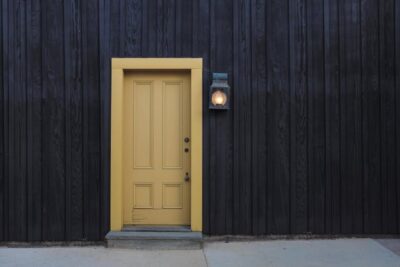Doors are not only the means of entrance but also give the business the first look. They add to the aesthetics and ambiance of your building, affect the issue of power consumption, and play a part in your security systems. Whether your business is retail, commercial, or industrial, there is a significant difference in operation when the right door is selected. Consider some factors as you choose a door for your business to get one that fits your needs best. This firm is called Value Doors and specializes in providing high-quality, solid, and fashionable commercial doors.
Security and Safety
The primary purpose of any door is to protect and secure, especially from intruders. In any business, this can be very important. Just like your house is designed with security in mind, the type of door you choose should be able to protect your property from possible intruders. Some examples of these doors include steel doors, which are very tough and rigid to break and, therefore, suitable for use by commercial enterprises. In the same way, frames with enhanced protection, as well as lock designs, may provide extra protection to the area that is surrounded by doors.
Another important factor we can also consider is fire safety. Fire-resistant doors are created to be heat-proof, and they help slow down the fire’s effect, buy time for people to escape or for the firefighters to arrive, and reduce the fire’s effects on the property. You must ensure that the doors you use conform with the fire codes set down in your region to avoid mishaps that may endanger the lives of your employees and customers.
Durability and Maintenance
Businesses receive many people visiting them, and doors are often damaged due to the pressure applied. As a result, durability plays a significant role in choosing a door for the business. Metals like steel, aluminum, fiberglass, and similar plastics are durable and can last through heavy usage. While wooden doors can provide elegance to the building, metal doors are usually more problematic than they are, especially in areas that experience more traffic.
Another factor to consider is maintenance, as any piece of equipment, hefty and monumental, requires constant attention. Based on the type of material used on doors, some require frequent polishing, cleaning, and other related services to keep them in shape as necessary, while others may not require any service at all. For example, steel and fiberglass doors only demand a little attention from the user because they can be cleaned and checked only occasionally. While wooden gates can be used for a long time without any changes, sometimes they require refinishing or sealing to prevent moisture and normal wear and tear.
Aesthetics and Design
The outward look of the business premises significantly influences the number of clients a business attracts and the overall image of the company. Another factor concerning the door’s choice is its aesthetic compatibility with other structures in your building. Metals can be provided in various styles and finishes, from modern and minimalistic to traditional and vintage. For instance, glass doors offer pleasing aesthetics and are suitable for business establishments such as shops and workplaces like offices.
Design variables such as colors, texture, and handles can be used to ensure the door has the appropriate and consistent appearance with the rest of the business brand image. Also, examine its practical aspect as a design. For instance, the automatic sliding doors are an advantage to the customers since they can easily open the doors for their access. In contrast, the revolving doors help cut costs due to less energy used to heat the incoming air than the sliding ones.
Energy Efficiency
This paper focuses on the energy efficiency trend as an essential factor for companies seeking ways to cut operational expenses and environmental impacts. Selecting the right door can contribute to energy conservation since it has better insulation, but it can also contribute to energy loss. Doors regulate the internal climate by ensuring that the temperatures inside the building are not affected by the external environment, thus eliminating the need for expensive heating and cooling systems.
This also has implications for energy efficiency since certain materials used in construction absorb more heat than others. For example, fiberglass doors can be chosen for their great thermal conductivity; at the same time, glass doors with double or triple glazing allow for the admission of natural light without needing to improve thermal performance. Purchasing energy-efficient doors is one of the most economical decisions, and it will help save more energy in the long run.
Compliance with Regulations
Like any other business, it is required by local laws to conform to the established building codes and door codes and standards. It is very important to check all the standards that the chosen door complies with in order to avoid any legal complications and hazards to the premises’ users. This is with reference to fire safety regulations, disability access, and premises security standards.
There are certain legal requirements that govern the type of door that you need to use for your building. By consulting a professional or working with a good door supplier, you will be guided on which door is legal to use. A door also shields your business from some risks associated with your operations, thus creating a friendly atmosphere for employees and customers.
Conclusion
Purchasing a door for any business involves several factors that need to be examined to determine the best one, including security, durability, appearance, energy efficiency, and legal requirements on doors. Taking time to assess individual requirements and collaborating with a reputable vendor such as Value Doors can assist you in getting the right door that not only adds value to the aesthetic appeal of the business premise but also its utility in the future as far as problems such as thefts are concerned and expenses are cut down.



























